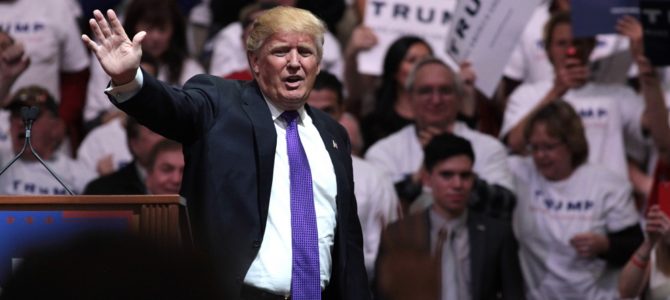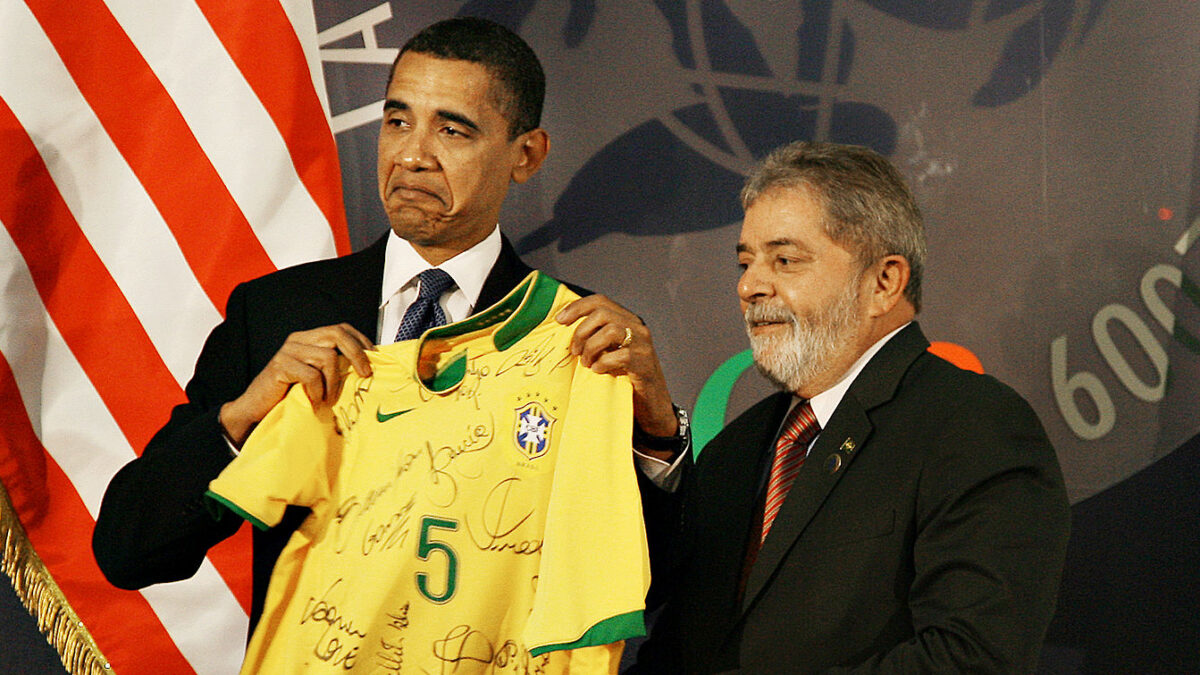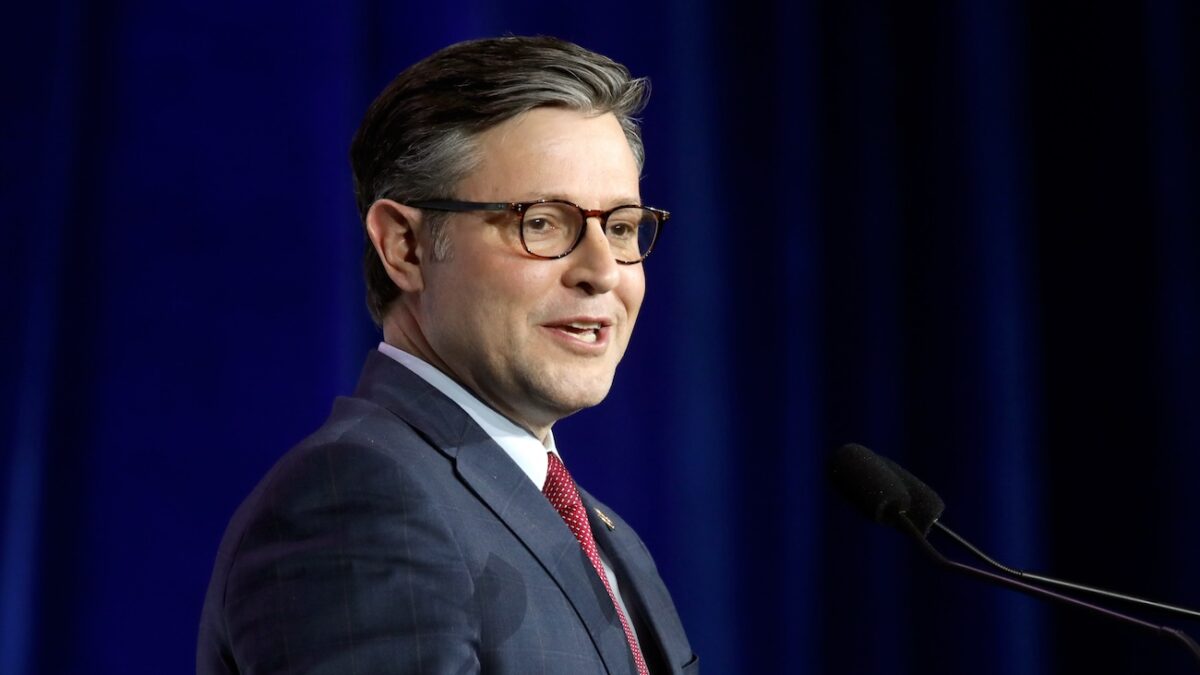
Since Woodrow Wilson’s malignant presidency, we’ve measured progress by the growth and centralization of state power. Expansion is a premise so thoroughly entrenched in our politics that reductions of federal authority are reflexively described as “going backward.”
For a century, American presidents of both major parties have counted their points on the legacy scoreboard by addition. Richard Nixon added the Drug Enforcement Agency and the Environmental Protection Agency; Jimmy Carter added the freestanding Department of Education, thoroughly federalizing a realm best left to states and communities; George W. Bush added the Transportation Security Administration and the Department of Homeland Security.
In pushing the Affordable Care Act through Congress, Barack Obama was advancing, growing more fairness and national sophistication in the soil of the New Deal and the Great Society. Only atavists could object, and only cruelty could motivate them. The history of the twentieth century provides ample evidence to challenge the premise that more state power equals more fairness, but that idea nevertheless took its place as the first article of faith in the bien pensant handbook.
Then came Donald Trump, whose accomplishments as a new president don’t use the same scoreboard. Trump has largely scored his game by subtraction. Along with his administrative appointees and an initially reluctant Republican Congress, our new president has largely restrained and reduced: national monuments shrunk, newly aggressive federal regulation of the Internet rolled back, federal taxes cut, and (most significantly) the “individual mandate” to buy a corporate product under threat of government punishment effectively repealed.
It’s the most extraordinary political accomplishment in at least 50 years, turning against a premise so completely accepted that it had come to be regarded as a kind of natural force, inevitable and incontestable: gravity, sunrise, federal power. But the centralization of American political authority happened in a context, and its continuation in the face of new contexts isn’t inevitable at all.
The Incorporation of America
In the decades after the Civil War, a nation of “island communities” became connected by the rapid growth of rail and telegraph systems. A giant swathe of unconsolidated land was swept entirely into the American nation, as the Plains Wars broke the last separate people inside the boundaries of the United States. Physical consolidation and connection brought cultural change, including standardizing time into zones; suddenly, in 1883, every town didn’t keep its own separate hours.
The process historian Alan Trachtenberg describes as the “incorporation of America” turned an agricultural nation into an industrial nation, bringing a modern managerial class and the giant nationwide business. The National Biscuit Company—Nabisco—began to sell the same cookies in the same packaging in Baltimore and San Francisco and St. Louis, a radical change in production and marketing.
America centralized in the late nineteenth century, in a process driven by technological change and a resolved schism between two competing economic systems inside one nation. The politics of the early twentieth century grew from the economic and social developments of the Gilded Age; Wilson was another product of the Second Industrial Revolution. The premises of centralized management—and the hubris of centralized government, the mature expression of “Seeing Like a State”—came from the machine era. Henry Clay couldn’t have nationalized education or health care, even if the thought had occurred to him. He didn’t live in that world.
But things that change can change again, and the post-industrial world won’t inevitably be ordered like the industrial world. No one knows what American society will look like in 20 years, with millions of jobs automated into oblivion and material abundance delivered by machines that produce and distribute goods without direct human control.
We’re Not Sure Where This Is Going Yet
Twenty years ago, nearly everyone who was interested in the Internet would have told you that it would be radically disintermediating, ruthlessly cutting out our cultural and economic middle men. It sort of has. Aunt Madge blows right by the gatekeepers with her blog, sending her thoughts straight to the whole world with no one to stop her. But the reach of Google and Amazon suggests the Internet will remain a realm of centralization and major players.
Our direction, and the lessons of it, are muddled: A few giant Internet companies make it possible for ordinary people around the world to speak without gatekeepers, sort of, except that conservatives keep tripping over Twitter’s Orwellian “Trust and Safety Council” and YouTube keeps demonetizing pro-Second Amendment videos. The gatekeepers are all gone, except that a few corporations dominate the Internet and actually kind of decide what you can get away with saying. It’s a moment of paradox and confused signals, a moment of change and disruption, the end state of which won’t be clear for a long time.
What we won’t be is 1950: the United Auto Workers making cars at Ford’s River Rouge Complex, in a vertically integrated industrial megacity that serves a stable purpose. The giant industrial corporation and the giant federal bureaucracy grew up together. The Wagner Act presumed a set of conditions that existed at a particular moment. The rise of the gig economy foretells changes in governance in much the same way the rise of Carnegie Steel and Standard Oil foretold the rise of big government. We’re headed somewhere else.
The Old Guard Agape and Angry
Faced with the sudden and rapid erosion of what they thought were their most self-evident and incontestable premises, the aristo-sinecurists of the American political class (and their courtiers in academia and the media) are aghast in much the same way that the papal court was baffled by Martin Luther: You don’t argue with someone like this. You just scream about heresy and pray that he goes away. This is what historical inflection points look like: The old guard stands there with their mouths hanging open.
Historian Bernard Bailyn wrote about just this kind of moment in “The Ordeal of Thomas Hutchinson,” his book about the last civilian governor of colonial Massachusetts. Prosperous, confident in his status, and well-regarded by polite society, Hutchinson was appalled by the gaggle of idiots who challenged his authority with dumb ideas that never began to make sense to him.
John Hancock? John Adams? Why did a sophisticated and serious man have to put up with people like this, men of no account who babbled meaningless nonsense about their absurd political theories? Hutchinson went home to great acclaim and an honorary doctorate from Oxford University. His successor, Gen. Thomas Gage, tried to solve Hutchinson’s lingering political dilemma by marching troops through Lexington and over to Concord to disarm the local militia.
In language that might as well be about contemporary American newsrooms and the ZIP codes that surround the District of Columbia, Bailyn described Hutchinson’s inability to address the challenges of his moment: “Hutchinson’s acceptance of high office led him inescapably into a deepening self-delusion….While what he needed most was an increasing sensitivity to the deepening difficulties of his position and a broadening responsiveness to the inner meanings of the opposition voices, he became more and more tone deaf, more and more locked into a narrowing set of responses – less imaginative, less flexible, less perceptive.”
Law professor and Instapundit landlord Glenn Reynolds argues that hysteria has crippled Trump’s opponents: “If the press and the political opposition — but I repeat myself — were just sober, straightforward, and honest they could beat Trump easily.” It’s true, largely because they have a century of cultural momentum behind them, but there’s no danger it will happen.
The bizarre spectacle of the last year—the insistence that all policy deviation is mass murder, the certainty that a leader pursuing a course of deregulation and tax cuts is just like Adolf Hitler—is the product of an elite that has entirely lost the plot. A Ruth Marcus, Elizabeth Warren, Dana Milbank, or a Jeff Flake seem insane because they are, by the process of outdated enculturation and curdled learning. Stranded in a set of verities that peaked in 1934, they live out of rhythm with the cruel reality that keeps showing up outside their office doors.
Many people have been in this position. Hutchinson would understand; the Empress Dowager Cixi would recognize the rage and confusion of the Empress Dowager of Chappaqua.
You Can Hear the Stammering Loud and Clear
While the increasingly tone-deaf mandarinate of excellent sheep ritually chant their well-worn condemnations of Trump’s many heresies, the fascinating reality of the moment is that the president’s personality can’t be separated from the political fruits of his administration. Many political observers try to make this “yes, but” argument, acknowledging the successes of the Trump administration while condemning Trump the person for crimes of social deviation: He delivered tax cuts, but oh my goodness he does mean tweets.
At National Review, for a particularly clear example, Jay Cost writes that he’s “pleasantly surprised by the policy output of this administration,” but then adds: “And yet it is impossible to say that this year has been a successful one for the new administration. The problem has been the president himself.”
This distinction can’t be made. Over the last year, Trump has come into clear relief as a disrupter, a familiar historical figure. Moments of significant historical change find figures that can carry the weight, and they tend to have similar characteristics.
I’m working my way through Lyndal Roper’s magisterial biography of Luther. Arguing with the leading lights of the early modern Catholic Church, Roper writes, Luther developed “a distinctive German prose style – vivid, energetic, bursting with repeated verbs, and as earthy as Bruegel’s pictures.” While theologians and officials argued in scholarly Latin, Luther’s supporters printed cartoons showing them as animals and drooling fools.
Language to Break Through the Cant
The leader of the Reformation cheerfully fed this popular discourse: “Luther playfully invented nicknames for his opponents. There was the plodding Hieronymus Düngersheim von Ochsenfahrt, who became ‘the ox’; Emser was dubbed the goat, Eck the fool, Alveld the donkey, Pope Leo ‘that wolf,’ and the theologians became the ‘asses’ of Louvain and Cologne. He punned with the name of his adversary, Thomas Murner, christening him the ‘cat fool’ (Mur means tomcat in German, and Narr means fool). It made excellent cartoon material, and soon their grotesque portraits decorated the cheap pamphlets.”
People who come to lead popular movements through significant moments of deep change have the ability to speak simply and clearly in complicated circumstances. As Roper writes, Luther prevailed in debates with church officials and professors of theology “by translating their high-flown claims into crude physical terms, using earthly reality to deride abstraction.”
It works. You can’t march at the head of a populist parade without a popular vocabulary. There is no Donald Trump who pursues his policy course but becomes “more presidential,” more professorial and restrained. He is this person, and his vivid, energetic, earthy speech is the base that gives him a place to stand.
We are living through a bigger moment than we realize, and Trump is an interesting figure in ways that we can’t fully see yet.









